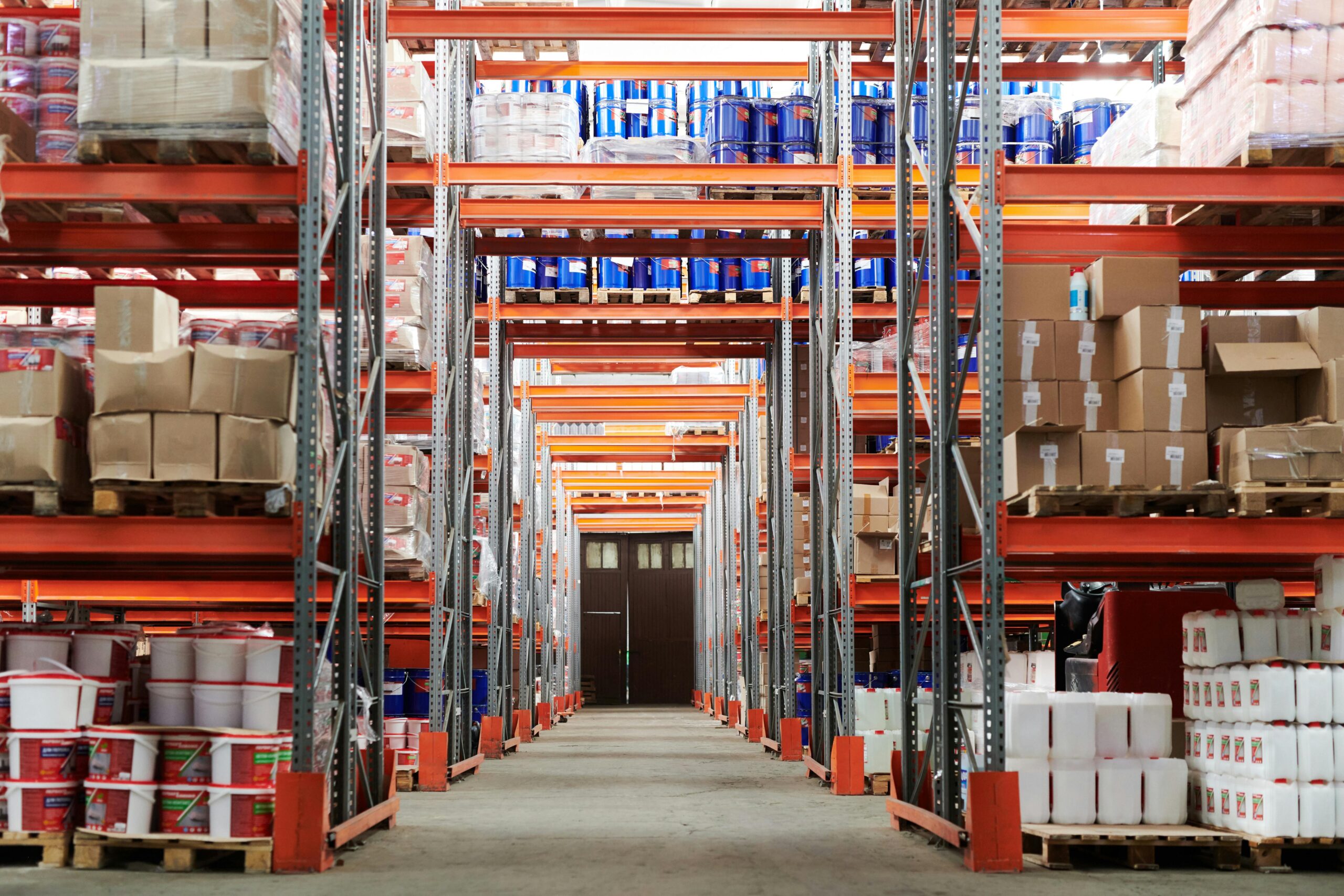The logistics industry is undergoing a transformative shift, driven by advancements in artificial intelligence. AI technologies are unlocking new possibilities, from optimizing delivery routes to automating warehouse operations. This article explores the most impactful AI use cases in logistics, showcasing how these innovations are enhancing efficiency, reducing costs, and addressing challenges in supply chain management. Discover how AI is reshaping the future of logistics and creating opportunities for businesses to thrive in a competitive market.
1. Predictive Maintenance
Predictive maintenance uses AI to continuously monitor the health of machinery and equipment in logistics operations. By analyzing data from sensors, such as temperature, vibration, and pressure, AI systems can predict when maintenance will be required, helping companies prevent unexpected breakdowns. This proactive approach not only minimizes costly downtime but also extends the lifespan of critical assets. For example, conveyor belts or forklifts in warehouses often undergo wear and tear; AI detects subtle changes in their operation, signaling the need for maintenance before a breakdown occurs. This ensures smooth supply chain operations, improves safety standards, and lowers the overall maintenance costs compared to reactive repairs. Predictive maintenance also applies to IT infrastructure, allowing businesses to foresee and address potential software or hardware issues that could disrupt operations.

2. Route Optimization
AI-powered route optimization analyzes vast amounts of data, including traffic patterns, weather conditions, and delivery schedules, to identify the most efficient routes for transportation. Unlike static routing systems, these AI solutions adapt in real-time, rerouting vehicles to avoid congestion, accidents, or road closures. This results in reduced fuel consumption, faster delivery times, and lower emissions. Logistics companies benefit from enhanced customer satisfaction, as timely deliveries are achieved even in unpredictable conditions. Moreover, by integrating data from GPS and IoT-enabled vehicles, AI ensures that fleet utilization is maximized, reducing idle times and operational costs. This technology has become essential in meeting the demands of same-day or next-day delivery services in the e-commerce sector.
3. Demand Forecasting
Demand forecasting relies on AI algorithms to analyze historical sales data, seasonal trends, and real-time market conditions. By identifying patterns and predicting future demand, these systems help businesses avoid overstocking or stockouts. For instance, during peak seasons such as holidays, AI enables companies to anticipate surges in demand, ensuring adequate inventory and optimized transportation schedules. This capability not only improves customer satisfaction by ensuring product availability but also reduces costs associated with excess inventory storage. Additionally, AI-driven demand forecasting supports better workforce planning by aligning staffing needs with expected demand, ensuring smooth operations during high-demand periods.

4. Inventory Management
AI in inventory management automates the tracking and replenishment of stock, ensuring optimal inventory levels. By analyzing sales trends, supplier data, and production schedules, AI systems predict when and how much inventory is needed. This prevents issues such as overstocking, which ties up capital, or understocking, which leads to missed sales opportunities. AI also enhances warehouse efficiency by streamlining storage processes and ensuring that high-demand items are easily accessible. Furthermore, real-time inventory tracking using AI-powered IoT devices provides instant visibility into stock levels, enabling faster response times to customer demands. This level of automation significantly reduces errors associated with manual inventory management and improves overall operational efficiency.

5. Automated Order Fulfillment
AI automates repetitive tasks in order fulfillment, such as sorting, labeling, and packing, which speeds up the entire process. By integrating machine learning algorithms, these systems can analyze order data to prioritize high-value or time-sensitive shipments, ensuring timely deliveries. Additionally, AI optimizes picking processes by grouping similar orders, reducing the distance warehouse workers or robots need to travel. This automation reduces human errors, enhances accuracy, and improves order processing times. Logistics companies also benefit from reduced labor costs and higher throughput, allowing them to scale operations efficiently during peak demand periods.

6. Real-Time Shipment Tracking
AI-driven real-time shipment tracking provides end-to-end visibility of goods in transit. By integrating IoT sensors and GPS data, these systems monitor the location and condition of shipments, alerting stakeholders to potential delays or disruptions. For example, if a shipment encounters traffic congestion or adverse weather conditions, AI systems can notify customers and suggest alternative plans. This transparency builds trust with customers while allowing businesses to address issues proactively. Additionally, real-time tracking reduces the risk of lost or damaged goods by enabling precise monitoring and faster recovery in case of unforeseen events.
7. Risk Management
AI enhances risk management in logistics by identifying potential disruptions and mitigating them proactively. Using machine learning models, businesses can analyze supply chain data to predict risks such as supplier failures, transportation delays, or regulatory changes. AI simulations can model “what-if” scenarios, enabling companies to develop contingency plans for various disruptions. This capability ensures that supply chains remain resilient, minimizing financial losses and operational downtime. Furthermore, AI systems monitor compliance with international trade regulations, reducing the risk of penalties or delays at customs.

8. Autonomous Freight Solutions
AI-enabled autonomous freight solutions, such as self-driving trucks and drones, are transforming logistics by reducing reliance on human drivers. These systems use advanced algorithms to navigate roads, optimize fuel efficiency, and deliver goods with precision. For last-mile delivery, drones equipped with AI can bypass traffic and deliver packages directly to customers’ doorsteps, reducing delivery times. Autonomous freight solutions not only cut operational costs but also enhance safety by minimizing human error. As technology advances, these systems are expected to play a crucial role in addressing driver shortages and meeting the growing demand for faster deliveries.
9. Customer Support with AI Chatbots
AI-powered chatbots are revolutionizing customer service in logistics by providing instant responses to queries and resolving issues efficiently. These virtual assistants handle tasks such as tracking shipments, answering FAQs, and processing claims, freeing up human agents for complex cases. AI chatbots also improve customer satisfaction by offering personalized interactions based on previous conversations or preferences. By integrating with CRM systems, they provide seamless communication across multiple channels, ensuring a consistent customer experience.

10. Process Automation
AI-based process automation streamlines repetitive and time-consuming tasks such as data entry, order processing, and document handling. Using robotic process automation (RPA) integrated with AI, companies can handle large volumes of operations faster and with fewer errors. For example, logistics firms utilize AI to automate tasks like generating invoices, managing shipment documentation, and scheduling deliveries. By reducing manual intervention, these systems improve operational accuracy and free up employees to focus on more strategic responsibilities. AI-driven automation also ensures consistency across workflows, minimizes delays, and enhances overall supply chain efficiency.

11. Cognitive Warehouse Management
AI-powered cognitive systems enhance warehouse management by optimizing storage layouts and automating inventory tracking. By analyzing data on inventory turnover rates and product demand, these systems recommend the best storage positions to maximize space utilization. Additionally, AI integrates with robotic systems to assist with picking, packing, and shelving tasks, improving speed and accuracy. These solutions reduce the need for manual labor while maintaining high operational standards. Real-time monitoring of warehouse activities through IoT sensors and AI analytics further ensures seamless operations and minimizes disruptions.

12. Risk Profiling for Supplier Management
AI uses advanced analytics to develop risk profiles for suppliers, assessing factors such as payment history, reliability, and performance. These profiles help businesses anticipate potential supply chain disruptions and take preemptive measures to mitigate risks. By analyzing historical data and external factors like geopolitical events, AI identifies patterns that may signal supplier instability. Companies can then make informed decisions about diversifying their supplier base or renegotiating contracts, ensuring greater resilience in supply chain operations.

13. Energy Optimization in Logistics Facilities
AI technologies combined with IoT sensors enable real-time energy consumption management in warehouses and distribution centers. These systems monitor electricity usage, temperature control, and lighting to identify inefficiencies and suggest adjustments. For example, AI can optimize HVAC systems in warehouses by adapting to changing weather conditions, ensuring cost-effective climate control. This contributes to sustainability goals by reducing carbon emissions and lowering operational costs without compromising productivity.
14. Anomaly Detection in Supply Chain Processes
AI enhances accuracy in supply chain management by detecting anomalies in data patterns or operational activities. For instance, AI systems can flag discrepancies in shipment records, unusual delays, or unexpected changes in transportation routes. Using machine learning models, these systems analyze large datasets to identify irregularities that could indicate potential problems, such as fraud, equipment failure, or human error. Proactively addressing these issues helps companies minimize financial losses and maintain smooth supply chain operations.

15. Last-Mile Delivery Optimization
AI plays a critical role in optimizing last-mile delivery by analyzing customer data and logistical constraints. These systems suggest personalized delivery options, such as same-day or time-slot deliveries, based on customer preferences and location. By integrating with GPS and real-time traffic data, AI ensures that deliveries are completed efficiently, even in congested urban areas. This technology reduces delivery costs and enhances customer satisfaction by offering flexible and reliable service.

16. Yield Loss Analysis
AI helps logistics companies identify inefficiencies in production and supply chain processes through yield loss analysis. By analyzing data from manufacturing and distribution systems, AI pinpoints factors contributing to suboptimal output or delays. For example, it can identify bottlenecks in production lines or quality control issues affecting overall yield. These insights enable companies to implement targeted improvements, reducing waste and optimizing resource utilization for better cost efficiency.

17. Intelligent Freight Matching
AI facilitates intelligent freight matching by pairing shipment requirements with the most suitable carriers. By analyzing factors such as cargo size, destination, and delivery deadlines, these systems suggest optimal carrier options to ensure efficient transportation. Additionally, AI considers dynamic variables like fuel costs, vehicle availability, and real-time route conditions to improve decision-making. This technology reduces operational costs, minimizes delays, and enhances overall logistical efficiency.

18. Synthetic Data Environments for AI Training
AI systems in logistics benefit from synthetic data environments, which create artificial datasets to train and refine algorithms. These controlled environments allow AI to simulate decision-making scenarios and improve its predictive accuracy over time. For instance, synthetic data can mimic supply chain disruptions or peak demand periods, helping AI models learn how to respond effectively. This ensures that AI solutions are better equipped to handle real-world challenges, leading to more reliable and robust logistics operations.

19. AI-Powered Chatbots for Marketing and Sales
AI chatbots in logistics not only assist with customer queries but also support sales and marketing efforts. These systems analyze customer interaction data to identify preferences, enabling personalized marketing campaigns. For example, chatbots can suggest services or products based on customer history, boosting conversion rates. Additionally, they gather insights on customer satisfaction, helping businesses refine their offerings. By automating routine interactions, AI chatbots allow sales teams to focus on high-priority leads, enhancing overall productivity and effectiveness.
Conclusion
AI has become a transformative force in the logistics industry, offering practical solutions to longstanding challenges like route optimization, inventory management, and predictive maintenance. By automating repetitive processes and providing real-time insights, AI empowers businesses to enhance operational efficiency and reduce costs while maintaining high standards of customer satisfaction. From dynamic route planning to intelligent freight coordination, the use cases explored in this article highlight the diverse applications of AI across the supply chain, emphasizing its role in improving accuracy, agility, and resilience.
Looking ahead, the integration of AI in logistics is expected to deepen as businesses adapt to evolving market demands and technological advancements. While AI has already demonstrated its potential in streamlining operations, future developments may focus on sustainability, autonomous delivery systems, and even greater levels of predictive accuracy. For logistics companies, adopting AI is not just a trend but a strategic necessity to remain competitive in an increasingly complex and fast-paced global economy. By leveraging AI responsibly and effectively, businesses can continue to refine their operations and build more resilient, customer-focused supply chains.
